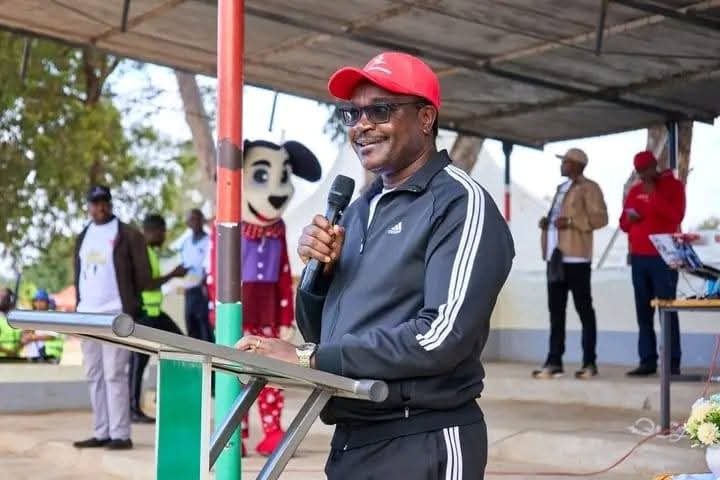 Education Cabinet Secretary Julius Ogamba Speaking at the Machakos Run for the Bibleless. Photo Virginia Siebela
Education Cabinet Secretary Julius Ogamba Speaking at the Machakos Run for the Bibleless. Photo Virginia Siebela
By Virginia Siebela
Education Cabinet Secretary Julius Ogamba has reaffirmed the government’s commitment to preserving and promoting indigenous languages, lauding the ongoing efforts of Bible Translation & Literacy (BTL) Kenya during a fundraising walk held in Machakos County.
Speaking at the Machakos Run for the Bibleless, Ogamba—accompanied by Machakos Governor Wavinya Ndeti—described the translation of scripture into native dialects as a moral investment in Kenya’s cultural identity. He emphasized the critical role of language in shaping values and strengthening communities.
The Education CS praised BTL Kenya, a faith-based organization, for its impressive achievements: six full Bible translations and 11 New Testaments already completed, with ongoing translation work in 20 Kenyan languages and nine others across Tanzania and South Sudan.
The fundraiser brought together a diverse mix of local schools, church leaders, educationists, corporate sponsors, and community members. The walk aimed to raise Ksh5 million to support Bible translations for marginalized and minority communities, including the Ogiek, Rabai, Ribe, Samburu, Daasanach, and Rendille.
Ogamba acknowledged the high financial cost involved in translation—approximately Ksh35 million to complete a New Testament over ten years, or around Ksh4,000 per verse. However, he stressed the lasting impact of the initiative:
“Every verse translated brings hope, light, and cultural preservation.”
Machakos Governor Wavinya Ndeti said there was need to continue supporting Bible Translation and Literacy to ensure that every Bibleless community receives God's word in a language they truly understand
"Nothing speaks louder than a language one truly understands"' she said
BTL East Africa’s Executive Director, Rev. Peter Munguti, expressed concern that many communities still lack access to the Bible in their own language—a gap that continues to pose spiritual and social challenges.
He reaffirmed BTL’s dedication to ensuring that all indigenous groups, regardless of size or remoteness, can access scripture in their mother tongue.
The event underscored growing recognition of language as not only a tool of communication but also a vessel for identity, values, and continuity.